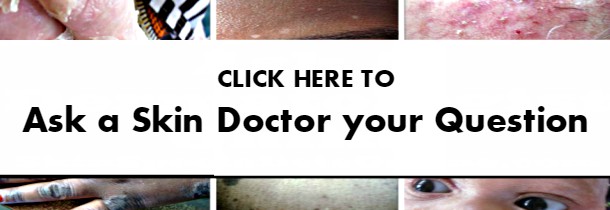
Dear Doctor
What can I do I am desperate for help?
Dear Patient
I would have loved a close up picture to see whether or not there are comedones. The absence of comedones would suggest that this is severe papulopustular rosacea.
Treatment of Severe Papulopustular Rosacea
The treatment of severe papulopustular rosacea includes the use of:
Oral Antibiotics
Antibiotics which are taken by mouth to treat rosacea include Doxycycline (Oracea) which can be given for 3 to 4 weeks at 50 mg or 100 mg twice a day for severe cases. The dose can be reduced after this period and a low maintenance dose of 40 mg daily which is taken to reduce inflammation.
Topical Antibiotics
Antibiotics which are applied on the skin like Metronidazole 1% gel (Metrogel) are also used.
Laser Therapy
Pulsed dye lasers like the Vbeam and intense pulsed light therapy (IPL) are used to improve vascular symptoms like erythema (redness) and flushing. Several monthly sessions are usually required.
Avoiding Rosacea Triggers
Last and certainly not least you should identify your rosacea triggers and avoid them. Common rosacea triggers include:
a. Foods and Drinks
Foods and drinks which can trigger rosacea include alcohol, hot spicy foods, foods which are hot in temperature and hot beverages, especially those which contain caffeine. Fruits, marinated meats, vegetables and dairy products are other potential triggers.
b. Physical Activities
Physical activities which can trigger rosacea include sun exposure, strenuous physical exercise, heavy exertion, taking hot baths, showers and saunas.
c. Emotional States
Emotional states that can trigger rosacea include emotional and mental stress, anxiety and anger. A sudden change in emotion like feeling embarrassed or bursting our laughing can also trigger rosacea.
d. Climatic Conditions
Climatic conditions that can trigger rosacea include hot weather, cold weather, humid weather, windy weather, sunny weather.
e. Medications
Medications that can trigger rosacea include corticosteroids applied on the face or inhaled through the nose, opiate painkillers and amiodarone. High doses of vitamins B6 and B12 can also cause flares in patients with rosacea.
f. Medical Conditions
Medical conditions which can trigger rosacea include fever, colds and high blood pressure. Menopause, chronic cough and caffeine withdrawal syndrome can also trigger rosacea.
g. Skincare Products
Skincare products which can trigger rosacea include harsh soaps, exfoliating creams and cosmetic.


